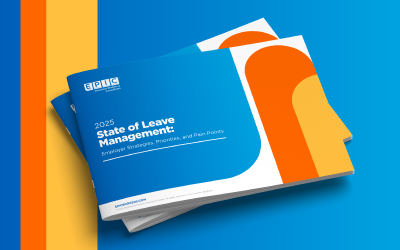EMPLOYEE BENEFITS
Data Supports Our Assertion That COVID-19 Has Worsened the Mental Health Crisis
Our data warehouse partner, Innovu, has provided us with insights on the impact of the coronavirus pandemic on medical claims. Based upon their aggregate analysis for Q2 2020 as compared with Q2 2019, only two categories of medical spend have increased: mental health and infectious disease as a primary diagnosis. Some key findings are that “health status” claims (which include routine check-ups and preventive care) are down 10%, and there are double-digit declines in claims for the digestive and nervous system and a significant reduction in claims related to other medical conditions. As I pointed out last week, it is unclear whether these claims will bounce back or never be incurred, and it also unclear whether medical conditions will worsen.
Viewpoints from Craig Hasday
But the rise in mental health issues is a problem that employers should be aware of.
Notably, anxiety claims increased by 6%, and adjustment disorders (e.g. suicidal thoughts or behaviors, feeling sad, hopeless, stressed out and overwhelmed) increased by 5%. The incidence of screening and history of mental health and substance abuse diagnoses increased by 17% over 2019. And suicide rates are up, particularly among children ages 11 to 18. The Childhelp National Child Abuse Hotline reported a 31% increase in call volume in March 2020 as compared with the prior year. The Federal Communications Commission (FCC) has approved a new three-digit “988” number for the National Suicide Prevention Lifeline, which will be fully adopted by July 2022, providing more direct access to mental health crisis counselors. The current 10-digit hotline number for suicide prevention is (800) 273-8255.
Employers need to be concerned about this trend in their workforce.
An assessment of mental health resources should be undertaken by all employers and senior management may want to open a dialogue with employees about the issues. Many organizations offer passive Employee Assistance Programs (EAPs) which are provided as a no-cost add on to long-term disability programs. It may be time for organizations to evaluate a more active approach and consider actions like increasing no-cost visits to mental health providers or waiving copays entirely.
The pandemic has left an indelible mark on worldwide healthcare. The impact on employers can be mitigated by proactivity.
EPIC has been proactive in this messaging, read more here on supporting emotional health, preparing for substance abuse claims, and pre-COVID issues with mental health care access in the healthcare industry.
For more COVID-19 information visit the EPIC coronavirus update center
See results from our In It Together COVID-19 pulse surveys by visiting epicbrokers.com/insights/preparing-for-the-new-normal
EPIC offers these opinions for general information only. EPIC does not intend this material to be, nor may any person receiving this information construe or rely on this material as, tax or legal advice. The matters addressed in this article and any related discussions or correspondence should be reviewed and discussed with legal counsel prior to acting or relying on these materials.
Related Content
Products
Employee Benefits Consulting
Our dedicated benefits team is focused on delivering better outcomes – to both your benefits program and ...
Products
Wellbeing & Health Management
Our consultants help you create a strategy around health management that will impact your culture and your ...
Industries
Healthcare
Our healthcare practice is known around the world for its expertise and passion in delivering exceptional ...



